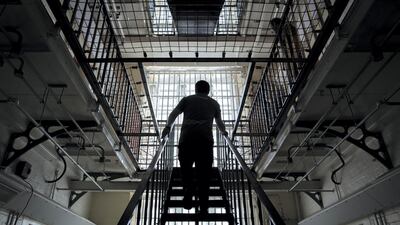A security firm run by a former Iraq reconstruction veteran has won a contract to help fight radicalisation in UK prisons.
The Ministry of Justice awarded a £150,000 ($212,301) training contract to Birmingham-based Minerva Advisory Group to develop a course to help prison officers working with convicted terrorists.
Minerva is run by Brigadier Nick Clissitt, who worked in the Office of Reconstruction and Humanitarian Assistance in Baghdad after the war to help rebuild Iraq.
He has since worked in the fields of stability and conflict prevention for the UK, focusing on the Middle East and North Africa.
The aim of the training is to support prison and probation staff employed in duties directly related to the management of terrorist offenders.
“The training will support intelligence and operational staff in both prisons and probation roles employed in duties directly related in the management of terrorist offenders,” the Ministry of Justice said.
The government is under pressure over the management of terrorism offenders after two who were released early committed attacks.
In November 2019, Usman Khan murdered University of Cambridge graduates Jack Merritt, 25, and Saskia Jones, 23, and wounded two others at Fishmongers' Hall, near London Bridge, during a prisoner rehabilitation event.
He was released early from a prison sentence for plotting to blow up the London Stock Exchange and moments before the November attack told people he had “changed his ways”.
Last year, ISIS extremist Sudesh Amman stabbed people in a south London street only days after his release from jail for terrorism offences.
He was being monitored by the intelligence services at the time.
The UK has since tightened laws surrounding the release of terrorist convicts.
Now offenders jailed for more than two years must serve at least two-thirds of their sentence in prison before they can be considered for release by the Parole Board, which will then release them only if they are deemed safe.
Last week, the government launched a bidding process seeking another organisation to create a counterterrorism e-training course for all prison staff.
The UK’s independent reviewer of terrorism legislation, Jonathan Hall QC, in March warned of the radicalisation risks posed by UK prisons.
“Prison time for terrorist offenders is increasing ever upwards,” he said.
“The reforms in 2020 mean that sentences will be increased further, and release dates delayed. One significance of these increasing terms is the attention that will need to be given to events in prison.
“Prison can make individuals more dangerous than when they entered, or be the setting for further terrorism offending.”
He warned there were “significant” concerns about the effectiveness of disengagement programmes and said convicted terrorists were pretending to sleep, wearing headphones and leaving for long toilet breaks to avoid taking part.


